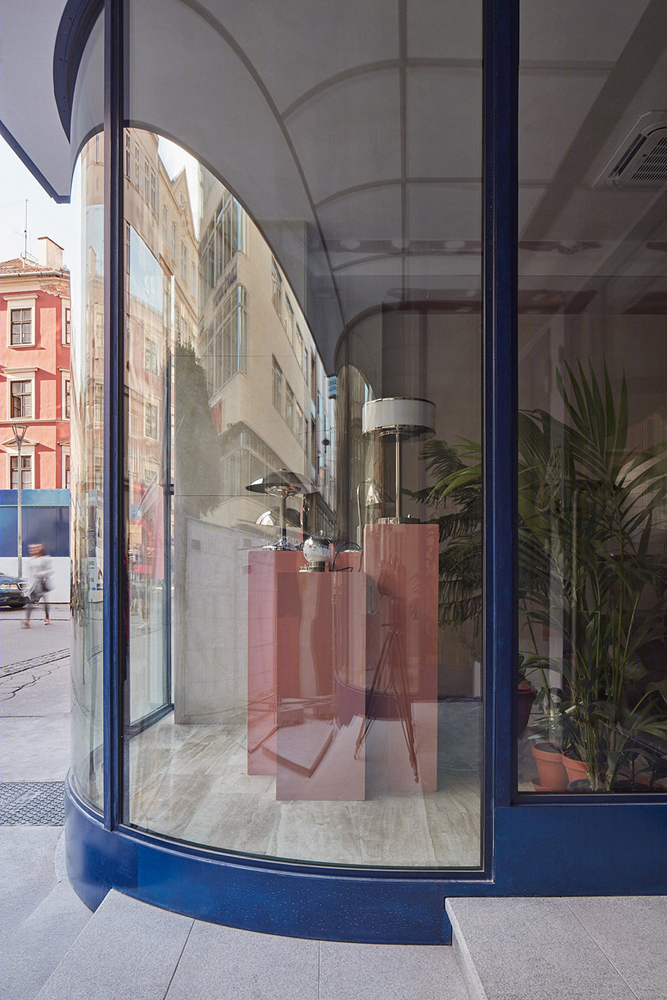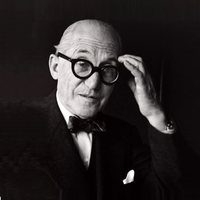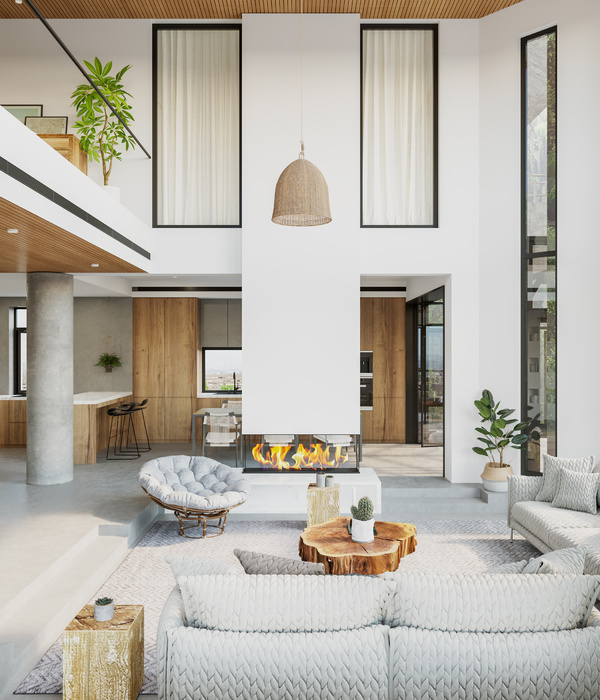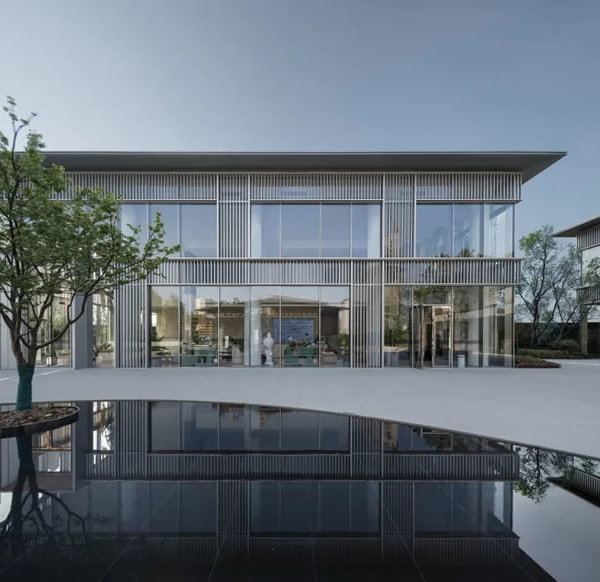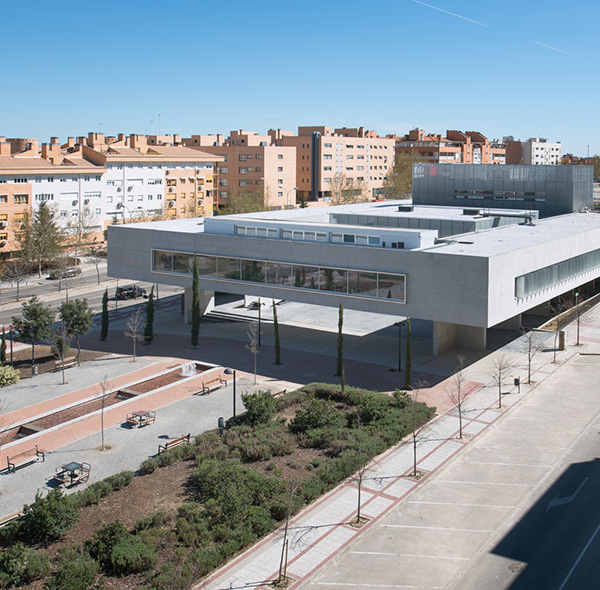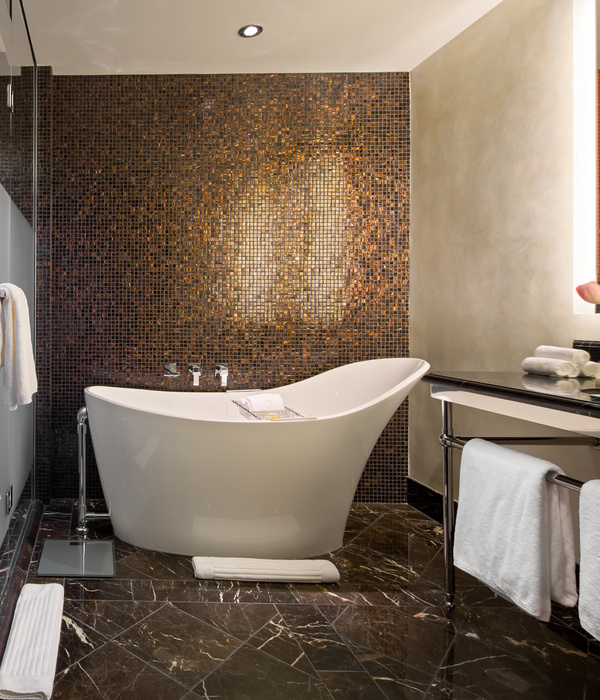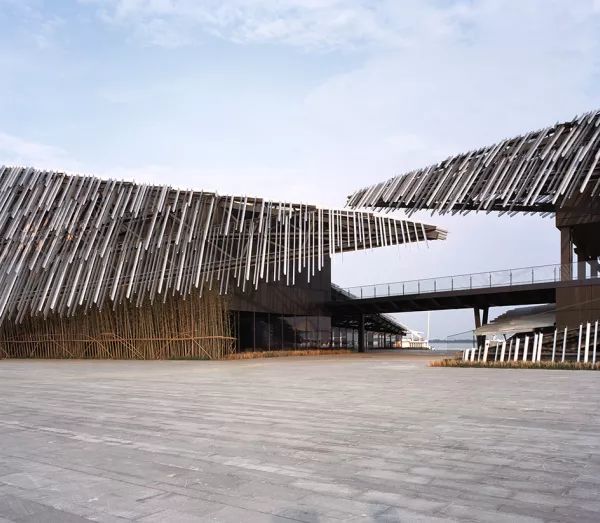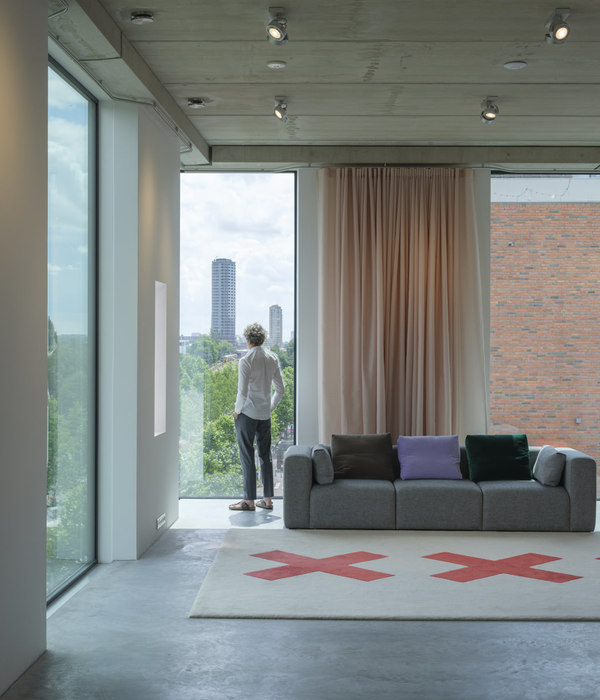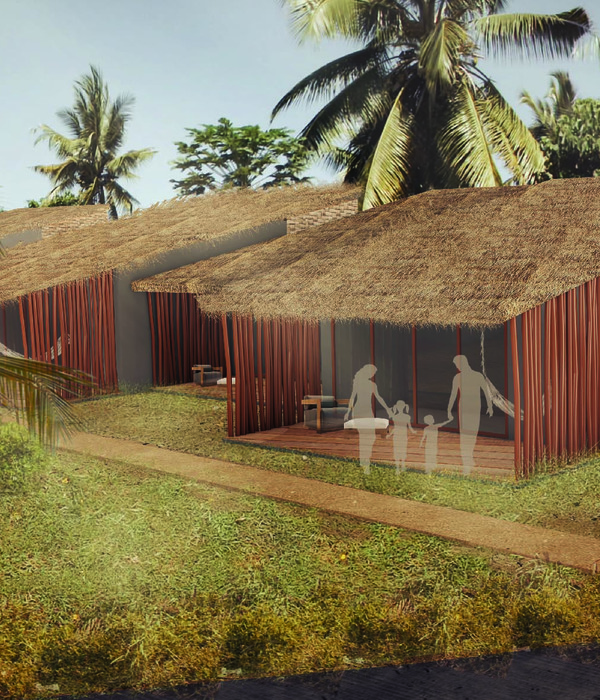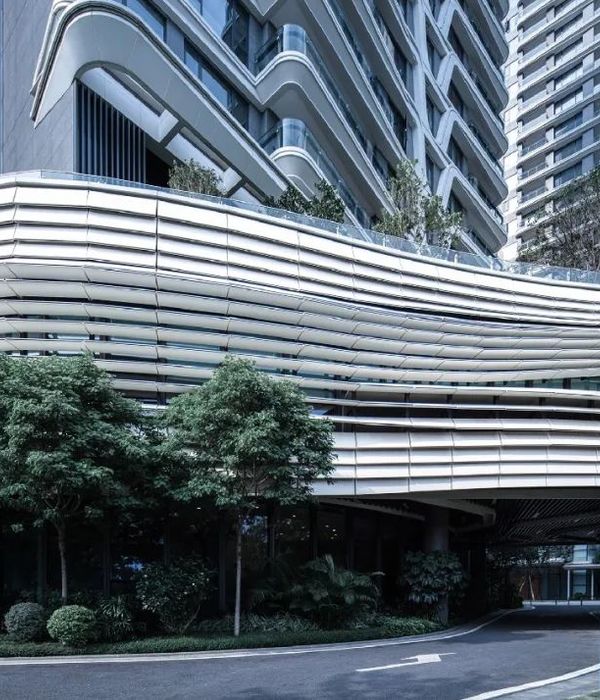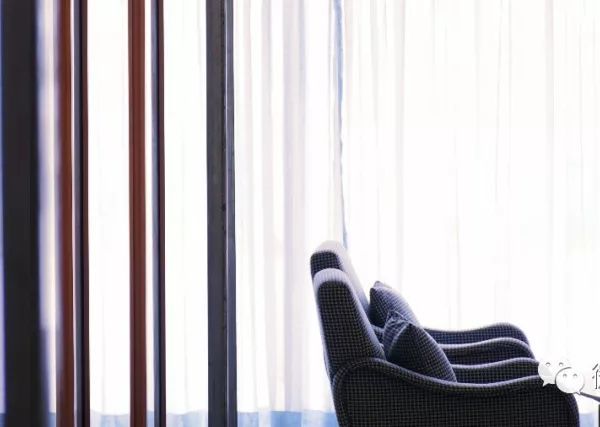捷克布尔诺设计节 | 废弃酒店垂直空间改造
布尔诺(捷克第二大城市)一直缺乏一个设计师间的交流平台,KOGAA建筑工作室的Alexandra Georgescu创立了一个每年一次的活动,让设计师们可以展示自己的作品,并且建立自己的合作关系网。KOGAA工作室致力于适应性再利用项目。工作室因设计了Distillery文化办公空间而闻名,将几近废弃的建筑进行改造是他们一直以来的追求。基于外观和建筑方面的考量,建筑师这次选择了Avion酒店(Hotel Avion)作为改造对象 。Avion酒店是一个狭长的功能性建筑,由当地建筑师Bohuslav Fuchs设计,采用了柯布西耶融合垂直空间的手法。举办活动需要复杂的空间,Avion酒店的垂直空间布局十分理想。将来这里可以举办一系列的活动,包括设计交流会、研讨会、设计展、颁奖典礼、时装秀、放映影片、售卖设计商品,还会有从早到晚都开放的咖啡厅。
The total lack of a local platform for the design scene in the City of Brno, led it’ s Founder and head of Architecture Studio KOGAA Alexandra Georgescu, to initiate the yearly event as a support for local designers to showcase their work as well as network and build new collaborations. The brainchild of adaptive-reuse projects, KOGAA Studio, internationally renown for their project of The Distillery – Social Reactor, pursue their ongoing ambition of reviving unused buildings by designating an inactive location to the yearly event. Selected for its iconic and architectural value, Hotel Avion is a very narrow functionalist building designed by local Architect Bohuslav Fuchs, who adopted the vertical mingling of spaces from Le Corbusier. It’s vertical stretch was the ideal set-up for the complexity the event’s program, which encompasses a series of design talks and workshops, design exhibitions, design awards, fashion shows, a cinema, a pop-up design shop and cafe opened from morning till night.
▼Avion酒店外观,facade of Hotel Avion
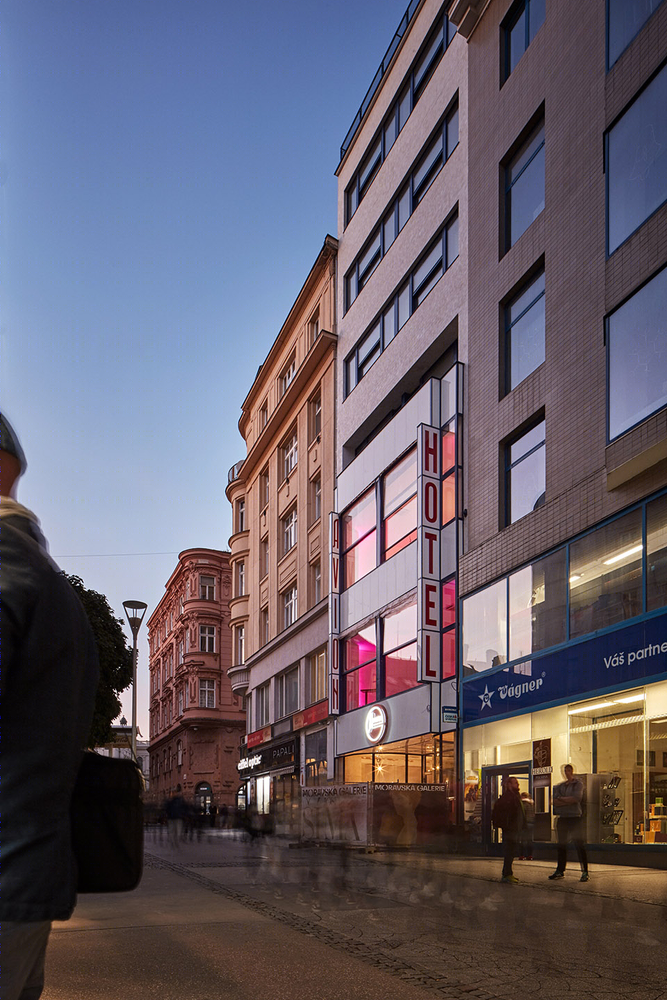

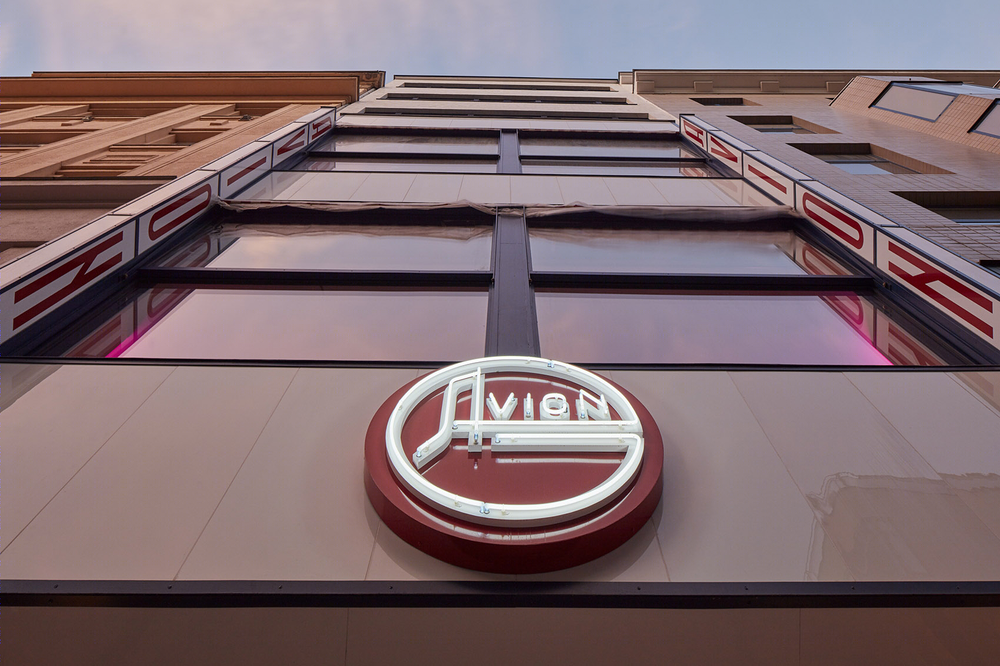
建筑一层是光线最昏暗的地方,设计师将它作为举办交流会和放映电影的空间,二层还保留原始的功能,作为自助餐厅,连接设计商店。长长的定制桌子是设计商店的基本设施,晚上举办时装秀时还可以在上面走台步。三层包含学生展区、休息区和后台。顶部的大厅用于规模较大的研讨会。
The ground floor, the darkest space of the building, was assigned for the talks and cinema program, while the first floor’ s function was kept as in the original plan as a cafeteria, with connected design shop. The long custom table used as the base for the design shop is turned in the night into the catwalk for the fashion shows. At the second level of the Hotel there is a student’s exhibition, lounge zone and backstage, while the top balcony is used for the bigger workshops.
▼一层通往二层的楼梯,stair to the first floor
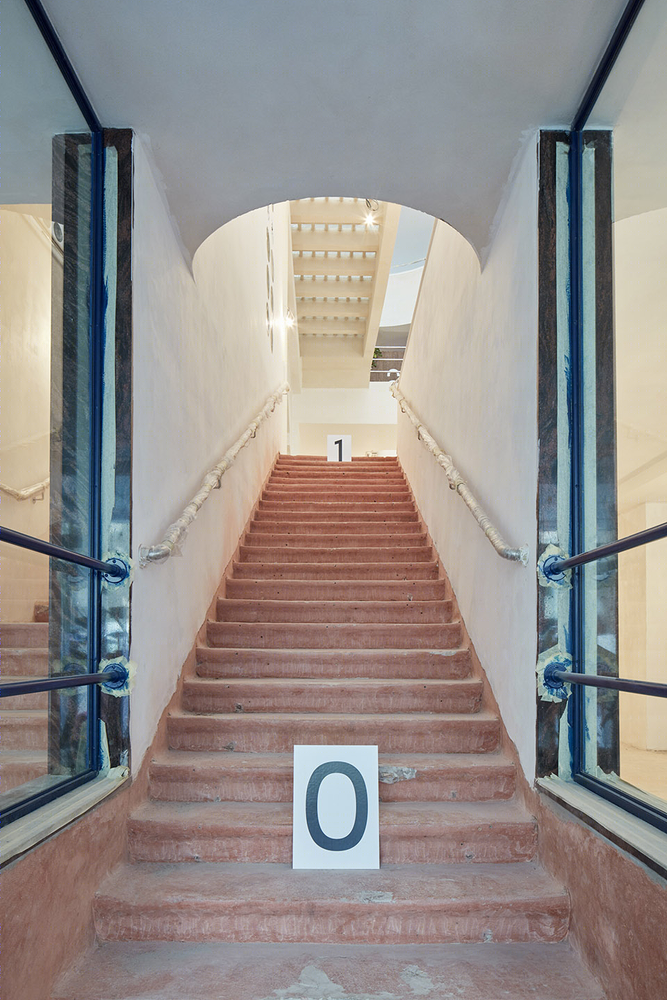
▼二层自助餐厅,cafeteria

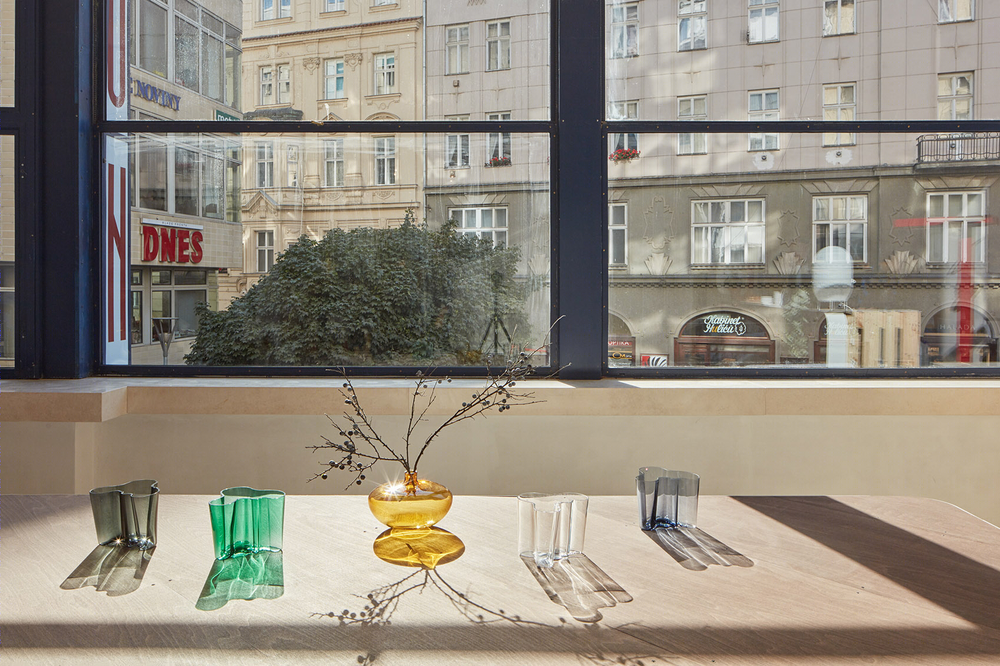
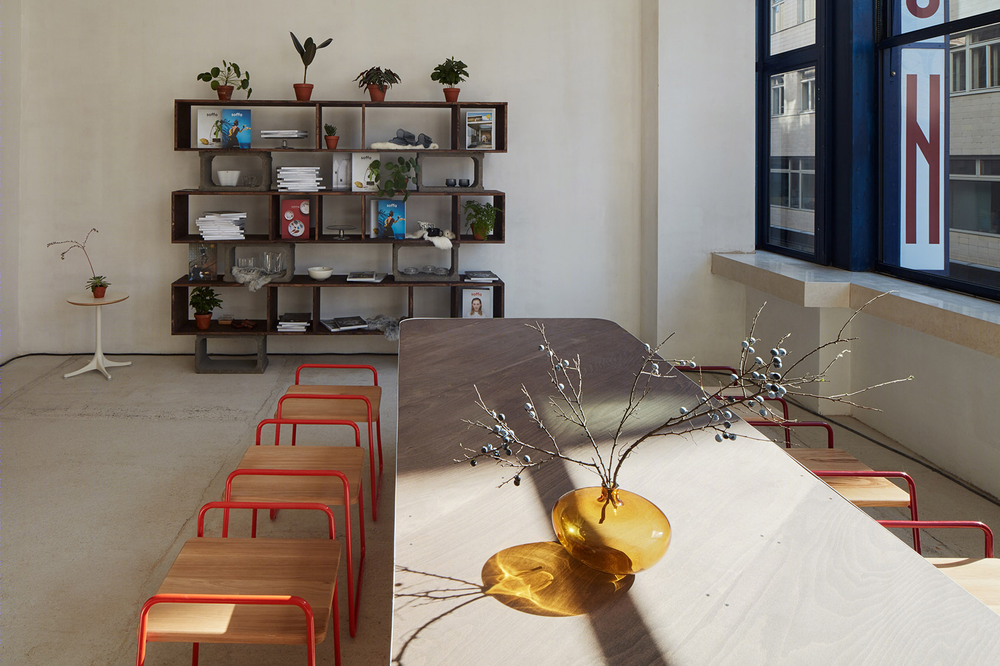
▼三层学生展区,student’s exhibition area on the second floor
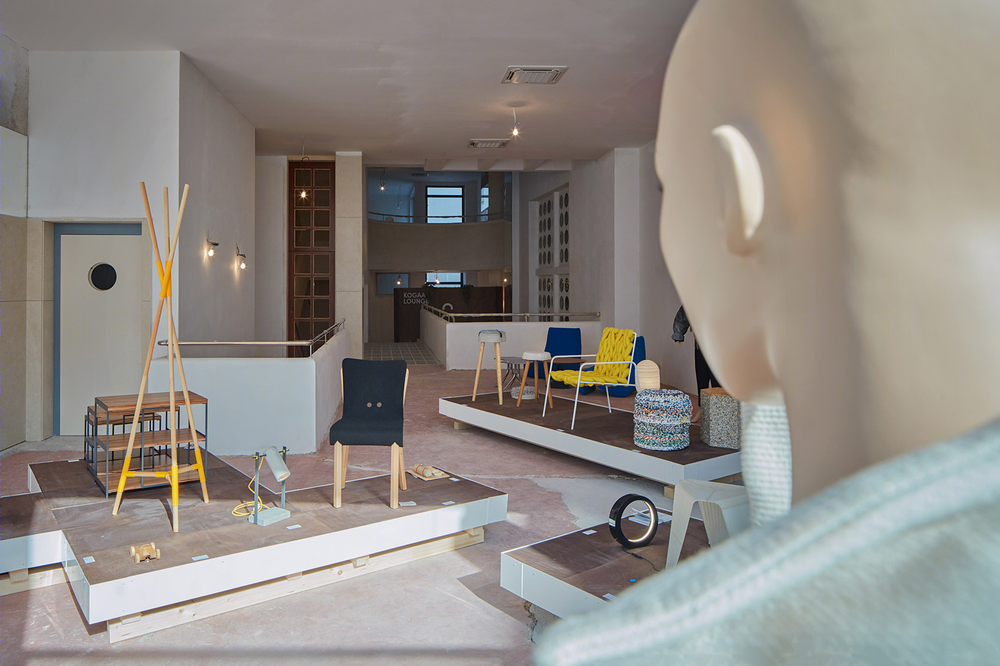
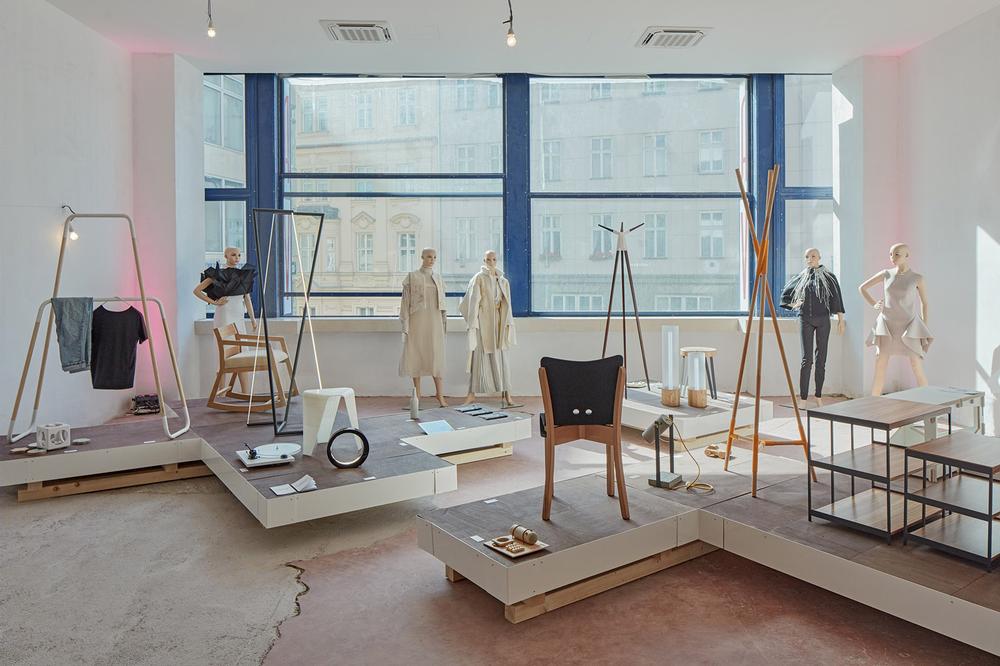
▼三层休息区,lounge zone on the second floor
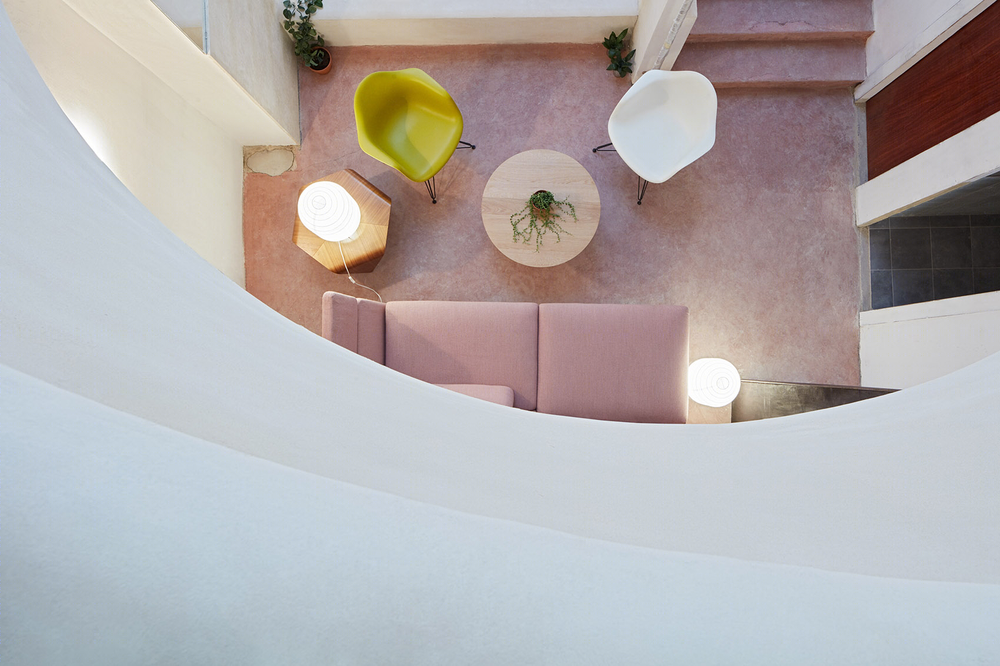
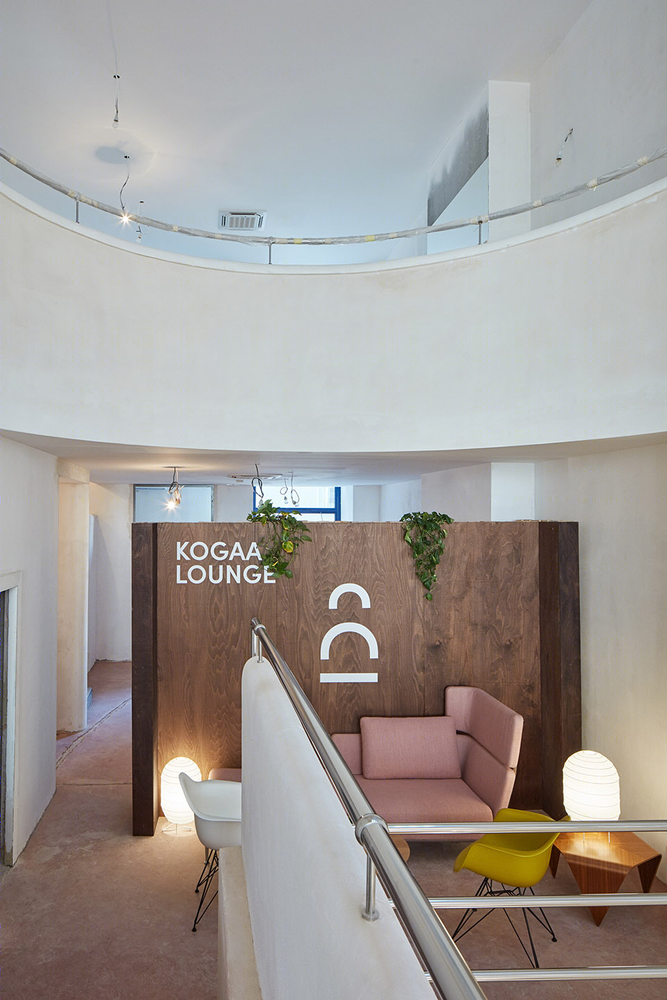
▼三层后台,backstage on the second floor
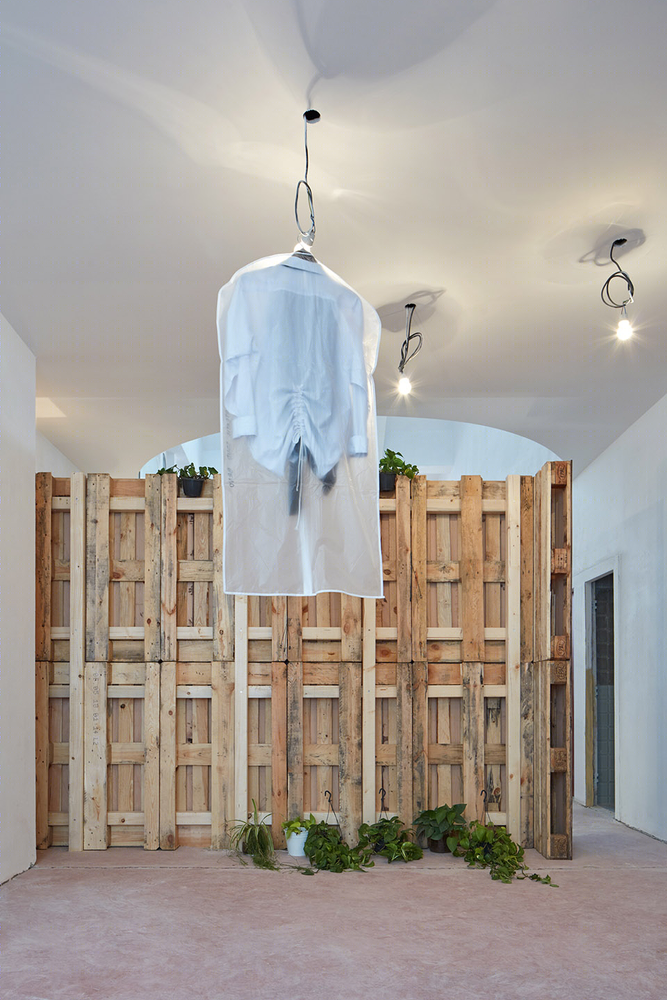
▼顶层研讨会区域,the top balcony is used for the workshops
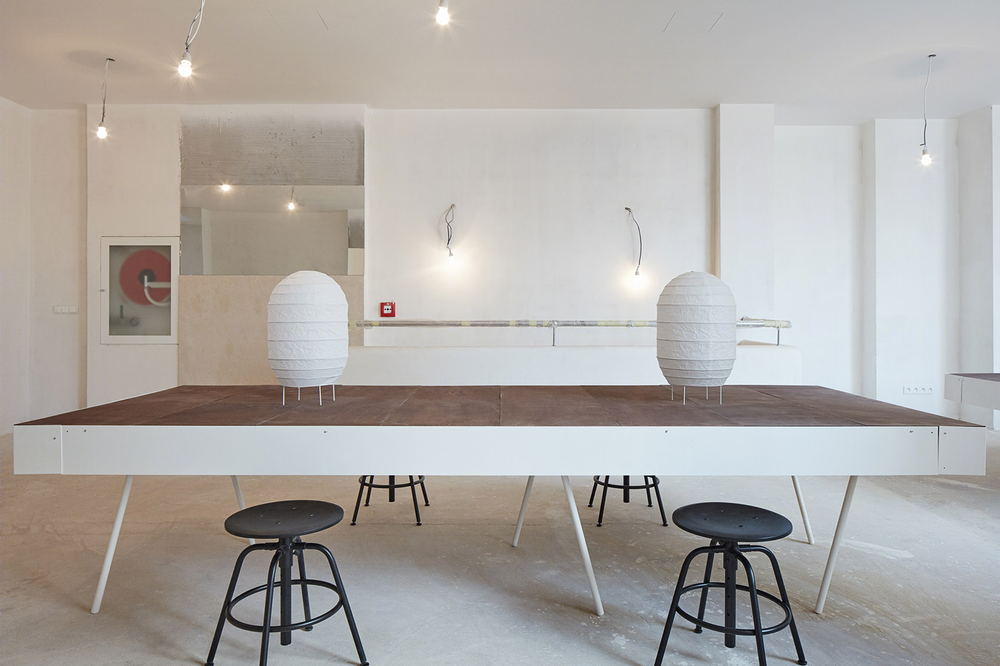
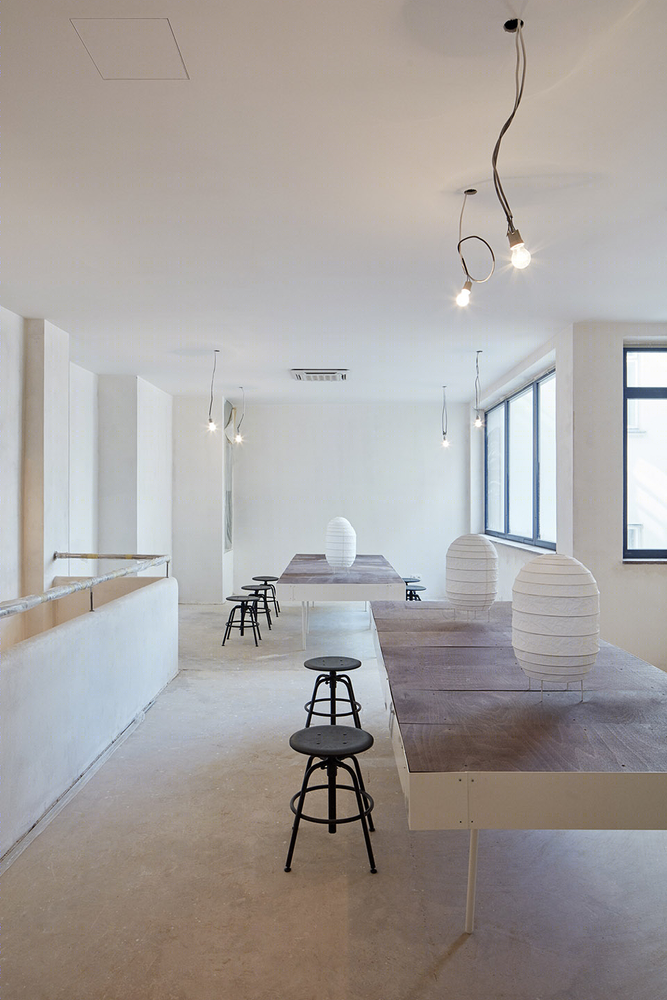
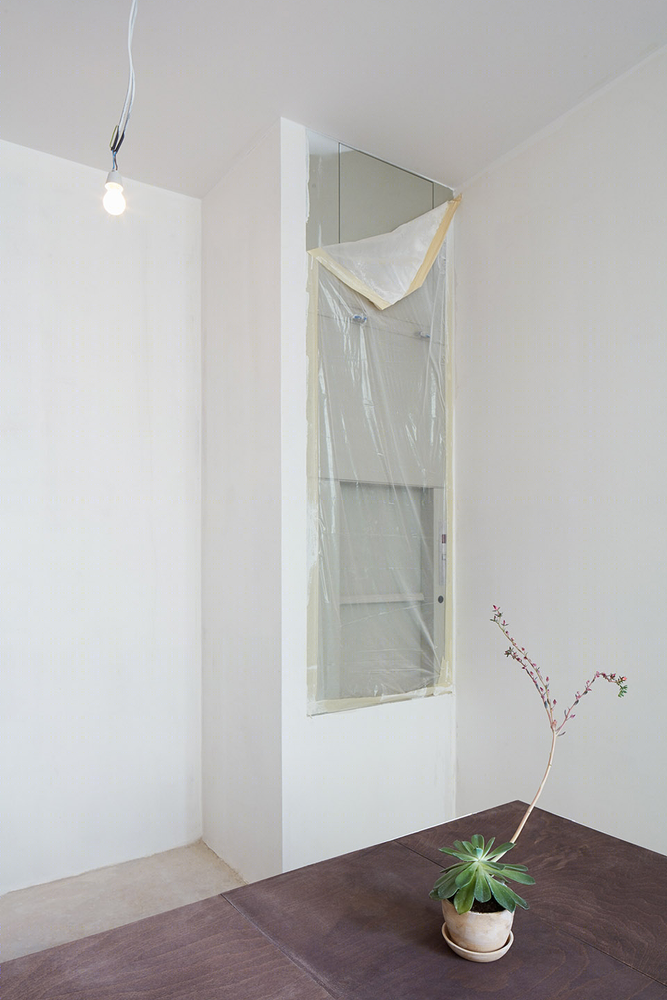
对于临时建筑来说最大的问题就是材料浪费,为了避免这种情况的发生,室内装潢全部选用标准配置,之后可以再组装利用。为了减少装修预算,桌子、凳子和吧台都由简单的板材制成,表面覆盖胶合板,层层叠加之后水平切割,磨平边角并用一层白色金属覆盖。桌腿的金属结构和白色金属边角都由DURO design制造,DURO design是一个当地的金属设计工作室。家具由Vitra提供,他也是这次改造的主要赞助商。四天的活动将设计和建筑界的各领导人物聚集起来,大家在这里建立起关系网、互相交流,展示自己的作品。客座演讲者包括Bertrand Shippan(MVRDV巴黎办公室负责人),Margherita Carrara(Dior品牌针织服装设计师),Frank Tjepkema(来自Tjep),Studio DeForm(产品设计领域的代表),Alexander Lauber(来自香水之家Wiener Blut),还有Adam Vodička(以Bar Který Neexistuje酒吧闻名)。
In order to avoid any material waste, which is one of the biggest problems of pop-up architecture, the interior installations and design solutions were designed by the architecture studio as a modular system which could be reassembled and re-used afterwards. Due to the reduced budget for the installations, the structural base of all the tables, stands and bar is made of simple pallets, covered with a thin layer of painted plywood, layed-out and cut horizontally, with rounded edges, enclosed by a layer of white metal edging. The metal structures of the legs for all the tables as well as the white metal edges were custom- made by local metal design studio DURO design, and all furniture was provided by Vitra, the main design sponsor of the event. The four-day festival brings together leading figures from across all fields of design and architecture industries for networking events, discussions and showcases. Guest speakers included Bertrand Shippan, Director of the Paris office of Dutch Architecture Firm MVRDV, Margherita Carrara who is a knitwear designer from fashion house Dior. Frank Tjepkema of Tjep and Studio DeForm presented from the product design field, Alexander Lauber of perfume house Wiener Blut and Adam Vodička of renown Bar Který Neexistuje.
▼为了减少装修预算,家具都由简单的板材制成, due to the reduced budget for the installations, the structural base of furniture is made of simple pallets
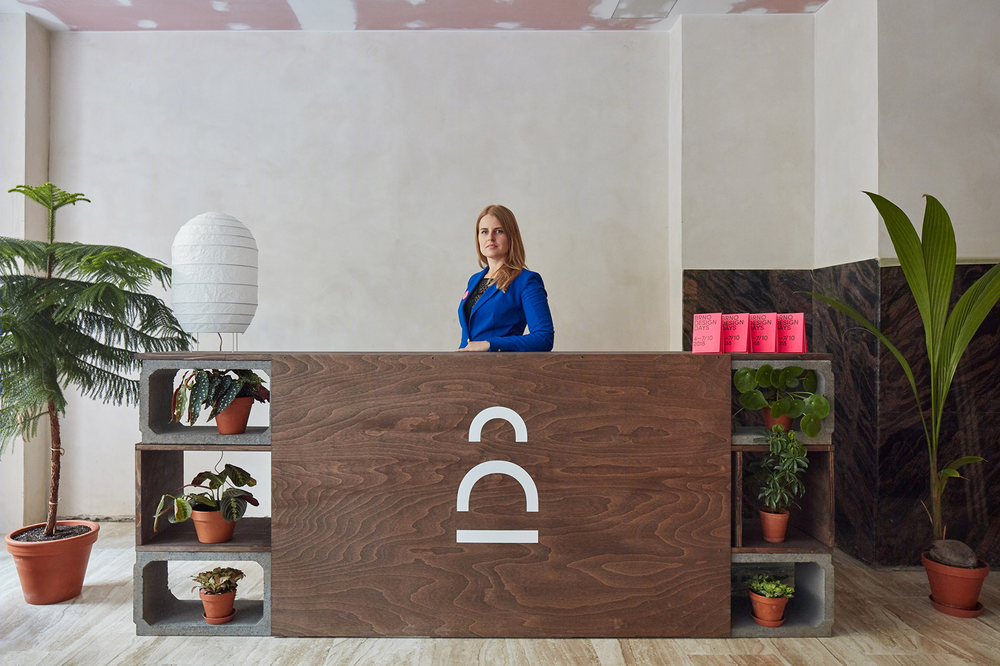
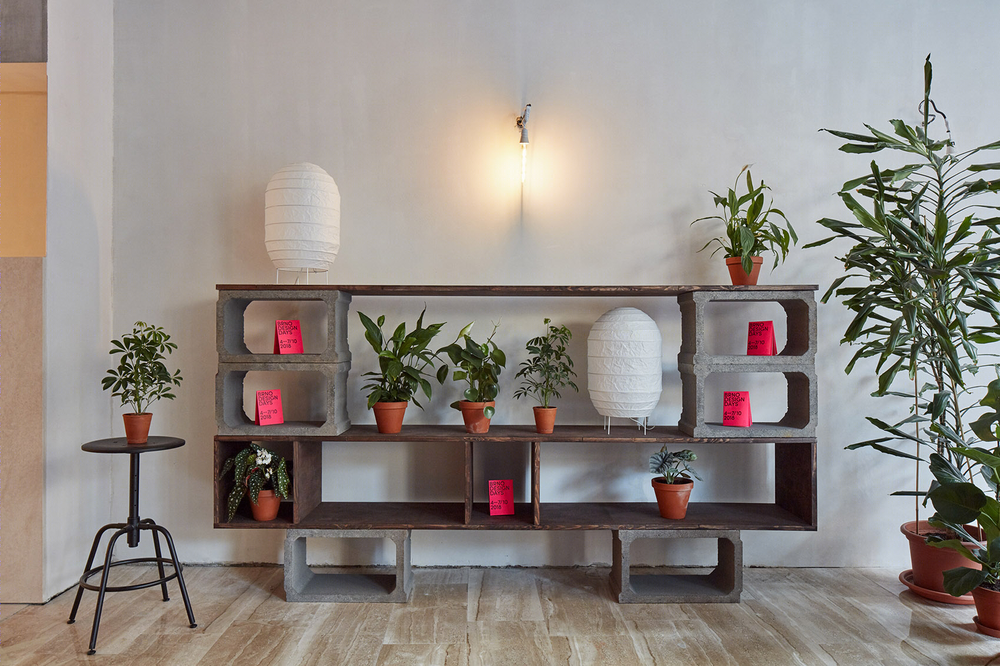
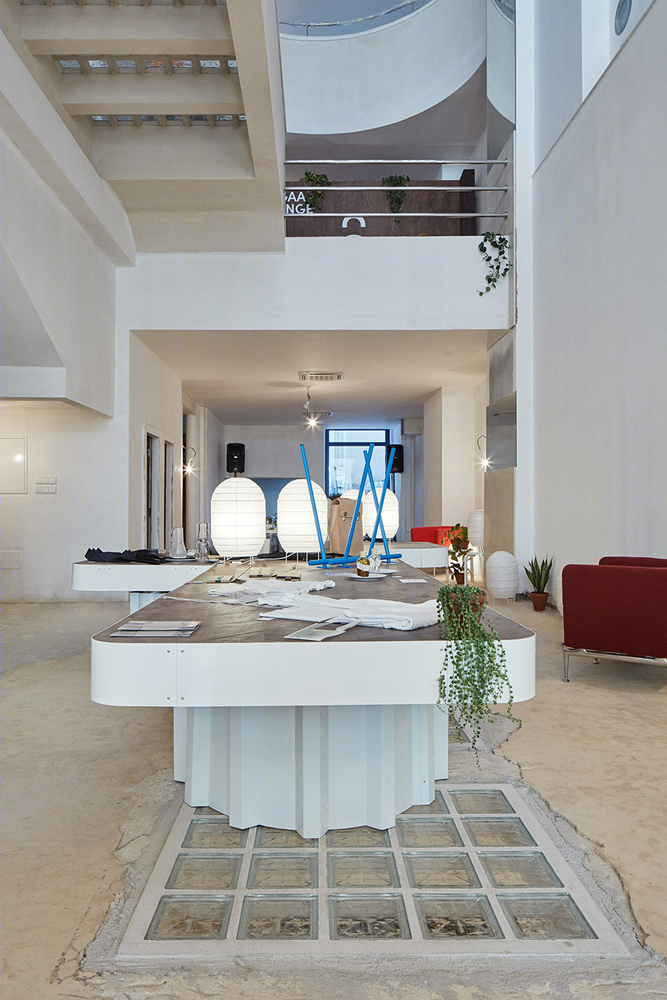
▼纵向空间关系,vertical spatial relationship

环城的橱窗展是今年布尔诺设计节的新环节,意在鼓励当地商人与设计师合作设计特别的橱窗,并在设计节和之后的一个月内展示。目的是将设计直接带入街道中,让每个过路人都能看到,而不是局限在一个封闭的环境中。另外也希望橱窗展可以促成更多的合作关系,并为市民提供更多的设计可能。
New to this year’s edition of Brno Design Days is the Windows Displays Project around the City, which encourages local businesses to work with designers to create a custom window display design for the duration of the festival and the whole month after. The goal is to bring design directly on the streets, visible by everyone, rather than only enclosed into one location. Also, it provokes collaborations and hopefully opens the minds to the public on design possibilities.
▼橱窗设计展,Windows Displays Project

